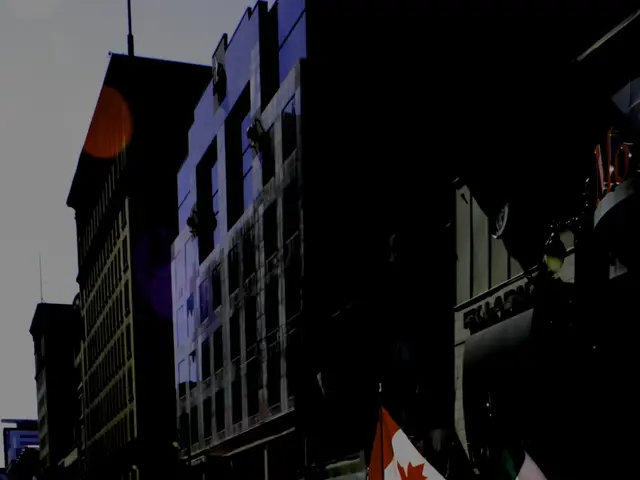German military procures 300 Patriot missiles at a cost of 1.5 billion euros.
In a series of significant events, Ukraine and Germany have been at the centre of global attention.
On August 28th, a Russian drone targeted a heating plant near Kyiv, but thankfully, no injuries were reported. The exact location of the incident was not specified, but Ukrainian Telegram channels reported it as the Trypillia power plant south of the capital. Remarkably, the drone did not have an explosive payload and was marked in Cyrillic script, suggesting it may have been a reconnaissance mission.
Meanwhile, damage was caused, but power distribution in the grid was balanced, and no shutdowns were necessary. This incident comes amidst ongoing Russian aggression towards Ukraine, with Ukraine reportedly striking the Russian oil pipeline Druzhba in the Bryansk region again, causing significant damage.
In a bid to bolster Ukraine's defence, the German Bundeswehr is planning to purchase 300 Patriot air defense missiles from the US for approximately 1.5 billion euros. The order is set to be completed over the next four years. Norway has agreed to contribute around 200 million euros to the purchase, with the US providing the remaining financing. The missiles will be used as part of the Patriot integrated system, which has proven effective in countering Russian missile attacks in Ukraine.
The increased military aid comes as Russia continues to recruit soldiers at an alarming rate. Vadym Skibitskyi, deputy head of the Ukrainian intelligence service (HUR), stated that Russia has recruited around 340,000 new soldiers this year. This success is due to strong financial support and propaganda campaigns, according to Skibitskyi. Russia is reported to be making "high payments" to contract soldiers, with the current rate for signing a first contract at 2 million rubles (around 21,000 euros).
Amidst these developments, Germany's role in providing security guarantees for Ukraine has been a topic of discussion. Johann Wadephul, Foreign Minister of Germany, is trying to dispel doubts about Germany's involvement. However, CSU leader Markus Söder opposes considerations of deploying the Bundeswehr in the context of security guarantees for Ukraine in the country. Söder's stance differs from Chancellor Friedrich Merz, who is not ruling out anything in this regard.
Elsewhere, Hungary and Slovakia continue to receive Russian oil through the transit pipeline, despite the ongoing conflict. However, the situation in Russia has led to shortages of gasoline in some parts of the country.
Recently, a drone crashed near Poland's border with Belarus in a cornfield in the village of Polatycze. It is too early to say whether it was a military drone or a device used by smugglers.
US President Donald Trump expressed his dissatisfaction about the situation in Ukraine following the largest Russian air attack on Ukraine since the start of the war. Trump's concerns underscore the global significance of these developments.
These events highlight the complex and evolving geopolitical landscape, with nations grappling with the challenges of security, energy, and diplomacy in the face of ongoing conflict.
Read also:
- Impact of Alcohol on the Human Body: Nine Aspects of Health Alteration Due to Alcohol Consumption
- Understanding the Concept of Obesity
- Lu Shiow-yen's Challenging Position as Chair of the Chinese Nationalist Party (KMT) Under Scrutiny in Donovan's Analysis
- Tough choices on August 13, 2025 for those born under Aquarius? Consider the advantages and disadvantages to gain guidance








